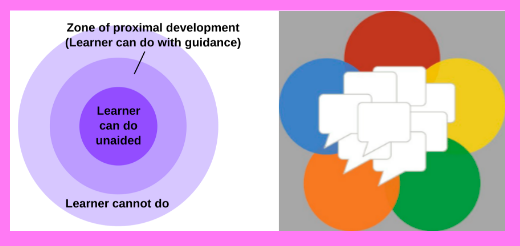


- Characteristics of Activities with High Intellectual Quality:
- Higher order thinking
- Disciplined inquiry
- Construction of knowledge
- Deeper knowledge & understanding
- Transfer of knowledge to novel contexts
- Analyze & synthesize information
- Explaining ideas
- Asking questions
- Thinking creatively and critically
- Designing and planning
- Self assessing and reflecting
- Cross curricular connections
- Adult-like roles and tasks
- Connect concrete and abstract knowledge
- 7 Intellectual Practices
- Mimic thinking and reasoning patterns of content experts
- Transform learning for different audiences and contexts
- Sustained academic conversations
- Connect concrete and abstract knowledge
- Connect written, spoken and other forms of communication to make meaning
- Critique knowledge and information
- Use meta-language while learning (talking about language)

.Characteristics of high intellectual quality and 7 intellectual practices can be used to create checklists to evaluate and revise a portfolio of scaffolding activities associated with a project. The characteristics of high intellectual quality describe components of a good PBL unit. This validates the work that goes into designing and implementing projects.

Preparation Steps
- Develop checklists based on the characteristics of high intellectual quality and the 7 intellectual practices to evaluate groupings of scaffolding activities
- Use checklists to identify what characteristics and practices are critical to scaffolding specific project products
- Research strategies that relate to specific intellectual characteristics and practices
- Design scaffolding that aligns to identified intellectual characteristics and practices
- Design assessments that provide evidence that students are developing critical intellectual skills
Early Implementation Steps
- Implement scaffolding activities that demonstrate intellectual characteristics and utilize intellectual practices that support specific project products
- Use assessments to determine whether or not students are learning targeted intellectual skills
Advanced Implementation Steps
- Identify key characteristics and practices that need to be spiraled throughout the curriculum because they are vital to the discipline
- Develop standardized routines and checklists that describe the critical skills and characteristics identified in previous bullet point
- Use prompts to get students to reflect on the development of key intellectual skills over several projects
- Create student friendly learning targets that describe various levels of intellectual skills
- Communicate learning targets and use prompts to have students provide evidence that they are progressing towards the learning targets

- See Literacy articles.
- See Rigor articles.
- See Differentiation articles.
